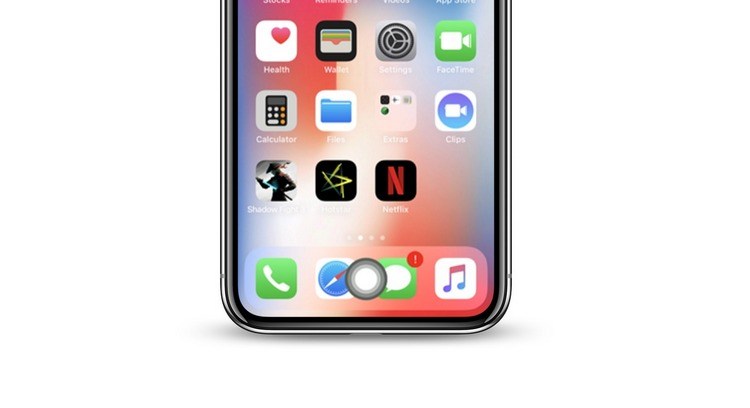Mozilla has made its latest (and greatest) browser,
Firefox Quantum, its own "rust" programming language. I have not tested the beta in the past month, and I was excited about my expectations for a new browser (a faster browser), but I thought it would not affect my work. I was wrong.
Why would you try a new browser?
I am using MacBook Air in 2014. Chrome can handle Chrome, but it's starting to show signs of the old version. As a result of Chrome's efforts to gain fame, you would not have used Chrome at all, unless you had too many browsers and Safari was too much for WordPress.
I am not alone with all the chrome headaches that work; Rupesh has been tired of calling his fans when his HP Envy is sick and Chrome is up and switching to Edge. So yes, when I received Mozilla's email about a new update to Firefox,
it was an update that promised twice as much speed and 30% less resource usage.
Firefox Quantum - A faster and better browser
With Firefox Quantum, you can say "Impressive" if you express your first impression in one word. The
interface is well thought out, and the 'Highlights' and 'Top Sites' features are not useful to me, but they can be removed very easily, so the
very basic 'New Tab' page remains intact.
All of your Chrome work has been transferred to Firefox throughout the day. Research and Twitter on WordPress and Quip; You did not miss Chrome at all, as you normally do in Firefox and Boy.
Of course there is no "
The Great Suspender" in Firefox. Chrome extensions are used to pause inactive tabs, but are not actually needed. I run the same 'app.sh' script each time I open my favorite Web site 30 times every morning and the difference in RAM usage is only about 300 MB, but the difference in speed is very noticeable. Without pausing the tabs,
Firefox is much faster than Chrome and unlike Safari, it does not go with WordPress.
So how does Firefox Quantum get rid of it? rust.
The amazing performance of Firefox Quantum is Mozilla's "green" programming language. Quantum's team used Rust to write code for a new browser that could distribute work across multiple cores, including a
new CSS engine, Stylo, which is not possible with CSS engines used in other browsers.
 |
| Quantum loads pages much faster than Chrome. |
However, for end users, benchmarking and background improvements are just as important as the user experience. The Mozilla team seemed to know this and applied it to
Quantum. Browsers automatically prioritize the active tabs to provide faster 'apparent' performance. Quantum also prioritizes what users think they are actually interested in. Because the article loads before the image comes out, it's not always what someone wants, but it's almost always what you want.
Adios, Chrome! Hola, Quantum!
So I've been using Firefox Quantum for a day, but it will not go back to Chrome. Not after the incredible speed improvements that Firefox Quantum offers and the resources MacBook Air has saved for other processes.



































![How to Turn Off The iPhone X [Guide] How to Turn Off The iPhone X [Guide]](https://blogger.googleusercontent.com/img/b/R29vZ2xl/AVvXsEjYi6CTe1APVdsnK79s4-Mwgo3lTzJc6aba_JukVGZWHFDETkUMF4TL42AU5qZrYz3N0W6j3hh0nS5krABaEbRnxdcLYlz8VKl23ykGK8IU6vjSnSoaslSLR_2rrf-NjNa8mbfcr91VG-dL/s1600/Turn-Off-iPhone-X-Featured.jpg)
![How to Turn Off The iPhone X [Guide] How to Turn Off The iPhone X [Guide]](https://blogger.googleusercontent.com/img/b/R29vZ2xl/AVvXsEhLcxIVf0wbbdrhtyObGvSJMVMpP9fT3PNhxVc_rbPiTBVRw9YiYQvuhkQuResSosZXjpON5OpQD8_Pr27NklXpJtyVuWGdx1WmKLpj30TGX3umNiuOeD9cpXQfpxrigGHWeDmngGjQC_zQ/s1600/1.jpg)
![How to Turn Off The iPhone X [Guide] How to Turn Off The iPhone X [Guide]](https://blogger.googleusercontent.com/img/b/R29vZ2xl/AVvXsEjWGIKBtkQG14BYJpiMz6Vqqvfcw35x8qjvKkOPvZODLNgD1C7wV_pJVA7FflgqPDs-uXipJ_owltjPyKsZBtlk4s-PPGBVg_13akJklMGlo4Ln9RTlxNYCZloVI9MRcy61UKgnpee0B4fn/s1600/2.jpg)
![How to Turn Off The iPhone X [Guide] How to Turn Off The iPhone X [Guide]](https://blogger.googleusercontent.com/img/b/R29vZ2xl/AVvXsEilJBJL5l6MqweUGGoskBQ-ocW2R6tbwypq_W0CBQzqxmYXOUYL_GH0Q5wVqTM42oRnwN6WsnLrpzWWmgC0pDmSI6ckP61TadtH7GTT3YNME3ycyPfDkfwPiwxrW8dtI7bwznpkgQYktbIR/s1600/3.gif)











